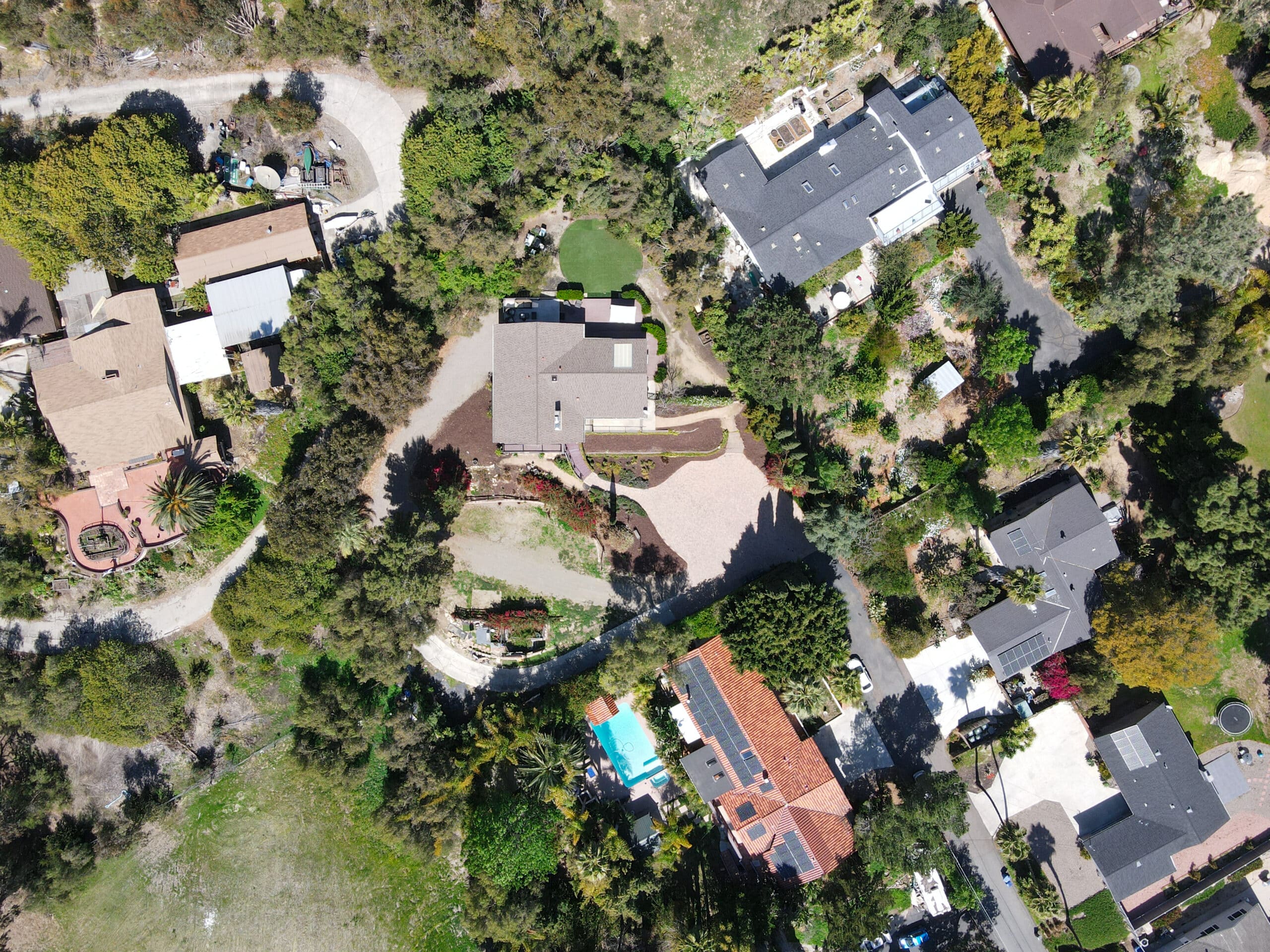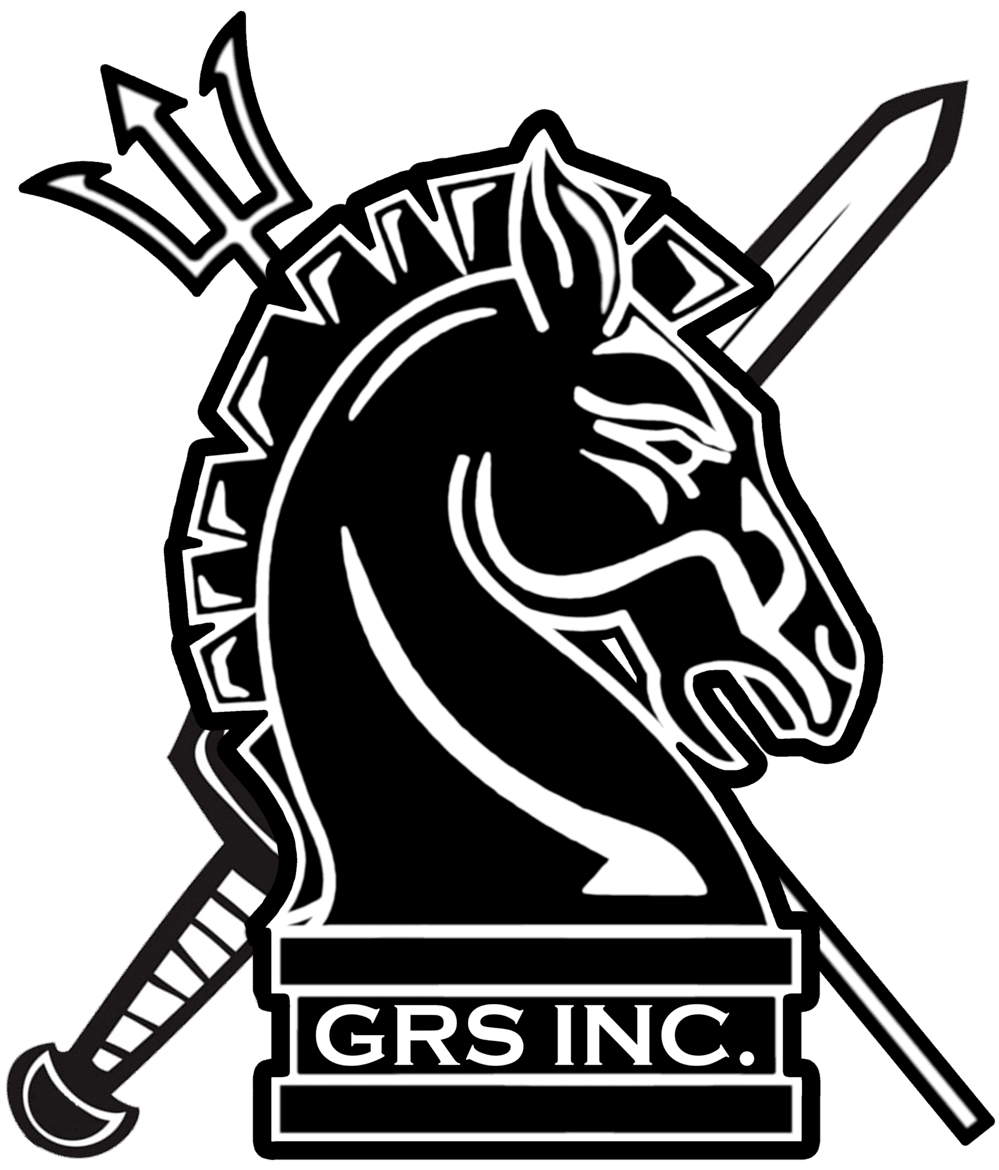Estimated reading time: 12 minutes
The need for adept security consultants must be balanced in an era where security threats are increasingly sophisticated and unpredictable. The right security consultant safeguards physical assets and fortifies an organization’s stability and trustworthiness. This comprehensive guide is designed to navigate the intricate process of selecting security consultants who meet and exceed the high standards for protecting your interests. With a keen focus on expertise, experience, and ethical integrity, this guide will traverse the multifaceted aspects of security consultancy, ensuring a prudent and proactive choice.
Table of contents
- Understanding the Spectrum of Security Consultancy Services
- Evaluating the Expertise and Experience of Security Consultants
- Understanding the Importance of Ethical Integrity in Security Consultancy
- Integrating Advanced Technologies with Traditional Security Measures
- Mastering the Art of Communication and Relationship Management in Security Consultancy
- Navigating Legal and Regulatory Compliance in Security Consultancy
- Prioritizing Continuous Improvement and Adaptability in Security Strategies
- Leveraging Collaboration and Partnership in Security Consultancy
- Conclusion
Understanding the Spectrum of Security Consultancy Services
Physical Security Assessment and Planning
Physical security remains a cornerstone in safeguarding assets, personnel, and information. A proficient security consultant will commence by conducting a comprehensive assessment of the existing security measures. This involves meticulous site inspections, evaluation of access control systems, and scrutiny of surveillance and alarm systems. The objective is to identify vulnerabilities and potential threats that could compromise the integrity of the physical infrastructure. Subsequently, the consultant devises a robust security plan tailored to the specific needs and structure of the organization.
Cyber Security Threat Analysis and Mitigation
Cyber security is an indispensable aspect of an organization’s defense strategy in the digital age. Security consultants specializing in cyber threats can pinpoint vulnerabilities within the organization’s digital footprint. They conduct thorough risk assessments, including penetration testing and network security evaluations, to detect potential points of exploitation. Beyond identifying risks, these consultants are instrumental in formulating a cohesive strategy to mitigate these threats. This includes implementing advanced cyber security protocols, compliance with data protection regulations, and fostering security awareness among the workforce. The consultant’s expertise is pivotal in shielding the organization from cyber attacks, data breaches, and other digital threats.
Crisis Management and Response Preparedness
The actual test of an organization’s security framework is its ability to respond effectively to unforeseen crises. Security consultants play a vital role in preparing organizations for such contingencies. They assess the organization’s current crisis management protocols, identifying gaps and areas of improvement. The consultant and the organization create a detailed crisis response strategy. Covering aspects such as communication tactics, allocation of resources, and the management of stakeholders. Training sessions and drills ensure the team is well-prepared to execute the plan under pressure.
Evaluating the Expertise and Experience of Security Consultants
Assessing Industry-specific Knowledge and Skills
Selecting a security consultant with the right expertise requires a keen understanding of your industry’s unique security challenges. A consultant’s ability to provide adequate security solutions is often rooted in their deep knowledge of specific industry standards, regulations, and potential threat landscapes. For instance, a consultant specializing in financial services will be adept at safeguarding against fraud and cyber-attacks, while one focusing on the retail sector might be more experienced in loss prevention and inventory control. Evaluating a consultant’s past projects, client testimonials, and familiarity with industry-specific risks is crucial. This ensures that the consultant’s expertise aligns with your organization’s security needs and compliance requirements.
Verifying Qualifications and Certifications
The credibility of a security consultant significantly hinges on their professional qualifications and certifications. These credentials are indicators of a consultant’s commitment to their profession, expertise, and adherence to industry standards. Renowned certifications such as the Certified Protection Professional (CPP) or Certified Information Systems Security Professional (CISSP) test a consultant’s proficiency in security management and cyber security. When evaluating potential consultants, it is essential to verify the authenticity of their certifications and consider their relevance to your specific security requirements. Moreover, continuous education and up-to-date certifications signify a consultant’s dedication to staying abreast of the latest security trends, technologies, and best practices.
Analyzing Past Performance and Client Feedback
Past performance is a reliable predictor of a consultant’s capability to deliver results. Scrutinizing the consultant’s track record involves examining the success of their previous projects and the impact of their strategies on enhancing clients’ security posture. Client testimonials and case studies offer insights into the consultant’s problem-solving approach, ability to tailor strategies to specific needs, and proficiency in implementing effective security measures. Seeking feedback from former clients can also provide an honest assessment of the consultant’s reliability, professionalism, and overall quality of their service. An exemplary track record, supported by positive client testimonials, indicates a consultant’s potential to address your security concerns effectively.
Understanding the Importance of Ethical Integrity in Security Consultancy
The Role of Ethics in Security Decision-Making
Ethical integrity is paramount in security consultancy, as the actions and recommendations of consultants can have far-reaching implications. Security consultants are often privy to sensitive information and are entrusted with protecting an organization’s and its stakeholders’ well-being. Consequently, they must adhere to the highest ethical standards. This includes maintaining confidentiality, avoiding conflicts of interest, and ensuring their recommendations do not compromise the organization’s ethical principles. Ethical consultants prioritize their clients’ long-term security and reputation over short-term gains, ensuring that all security measures align with legal standards and moral expectations.
Assessing Transparency and Accountability
Transparency and accountability are critical components of ethical security consultancy. A reputable consultant should be transparent about their methods, the rationale behind their recommendations, and any potential risks or limitations associated with their strategies. This openness fosters trust and ensures the organization is fully informed when making crucial security decisions. Furthermore, accountability entails that consultants are prepared to take responsibility for their advice and its implications. This involves setting clear expectations, providing accurate and thorough documentation of their findings and recommendations, and being available to address any concerns or issues that may arise post-implementation.
Evaluating Commitment to Data Privacy and Protectio
In an age where data is valuable, ensuring its privacy and protection is critical to ethical security consultancy. Security consultants must demonstrate an unwavering commitment to safeguarding sensitive information concerning the organization, its employees, or its customers. This involves implementing robust data protection measures and adhering to relevant regulations and standards. Evaluating a consultant’s approach to data privacy involves examining their track record in handling sensitive information, their knowledge of data protection laws (such as GDPR or CCPA), and their ability to incorporate data privacy principles into their overall security strategy.
Integrating Advanced Technologies with Traditional Security Measures
The Convergence of Physical and Cyber Security Technologies
The lines between physical and cyber security are increasingly blurred in today’s interconnected world. A comprehensive security strategy requires the integration of advanced technologies with traditional physical security measures. Security consultants must leverage technology to enhance physical security systems, such as integrating surveillance cameras with facial recognition software or connecting access control systems with employee databases for enhanced authentication. Similarly, physical security insights can inform cyber security measures, like using data from physical access logs to detect potential cyber threats. The consultant’s ability to harmonize these technologies reflects their understanding of the modern threat landscape and their commitment to providing holistic security solutions.
Embracing the Role of Artificial Intelligence in Security
Artificial Intelligence (AI) has revolutionized security, offering unprecedented threat detection and response capabilities. Security consultants must know the latest AI-driven security tools and be skilled in their implementation and management. This includes deploying AI for real-time threat analysis, predictive threat modeling, and automated incident response. However, leveraging AI in security also involves addressing challenges such as data privacy concerns, algorithmic bias, and the need for human oversight. A proficient security consultant will navigate these challenges, ensuring that AI tools are used ethically and effectively, complementing human expertise rather than replacing it.
Ensuring Resilience through Redundancy and Backup Systems
In the face of sophisticated threats, resilience is a critical feature of any security system. Security consultants must ensure that their security measures are robust and resilient. This involves designing systems with redundancy and fail-safes to provide continuous protection even in the event of a component failure or breach. Backup systems for data storage, power supply, and communication networks are essential to maintain operations during and after a security incident. A consultant’s approach to resilience also includes regular testing and updating of these systems to adapt to evolving threats and technological advancements. By prioritizing resilience, security consultants assure their clients that their assets and operations are protected against various scenarios.
Mastering the Art of Communication and Relationship Management in Security Consultancy
Establishing Effective Communication Channels
Effective communication is the backbone of any successful security consultancy engagement. Security consultants must establish transparent, consistent communication channels with their clients. This involves regularly updating clients on the progress of security assessments, implementing measures, and being receptive to their concerns and feedback. Effective communication ensures that clients are fully informed and involved in decision-making, fostering a sense of partnership and trust. Moreover, security consultants must be adept at translating complex technical jargon into understandable language, ensuring stakeholders at all levels comprehend the security strategies and their implications.
Building and Maintaining Trust with Clients
Trust is crucial in the client-consultant relationship, especially in the sensitive security realm. Security consultants earn trust by demonstrating reliability, discretion, and a deep understanding of their clients’ unique needs and challenges. This involves respecting client confidentiality, consistently delivering on promises, and showing a genuine commitment to the client’s security and well-being. Building trust is a gradual process that requires consistency, integrity, and professionalism. Maintaining this trust requires ongoing effort, as consultants must continually prove their value and adapt to changing client needs and security landscapes.
Navigating Complex Stakeholder Dynamics
Security consultants often operate in complex stakeholder dynamics, involving individuals and groups with diverse interests and perspectives. Successfully navigating this landscape requires strong interpersonal skills and a keen understanding of organizational behavior. Consultants must manage expectations, mediate conflicts, and build stakeholder consensus. This includes recognizing the influence of internal politics, cultural nuances, and individual motivations. By effectively managing these dynamics, security consultants can ensure that security strategies are technically sound and aligned with the organization’s goals and values.
Navigating Legal and Regulatory Compliance in Security Consultancy
Understanding the Legal Landscape
Security consultancy is heavily influenced by legal and regulatory frameworks that vary across jurisdictions and industries. A proficient security consultant must thoroughly understand these legal considerations to ensure their recommendations and strategies comply with relevant laws. This involves staying informed about legislation related to data protection, privacy laws, employment regulations, and industry-specific compliance standards. Consultants should also be aware of the legal implications of security breaches and the protocols for incident reporting. By understanding the legal landscape comprehensively, security consultants can safeguard their clients against legal risks and ensure that their security measures are effective and legally sound.
Navigating Industry-specific Regulations and Standards
Different industries are subject to specific regulatory requirements that dictate how security measures should be implemented and managed. Security consultants specializing in particular sectors must have in-depth knowledge of these industry-specific regulations and standards. For instance, consultants in the healthcare sector need to be well-versed in HIPAA compliance. In contrast, those in the financial services sector must understand the implications of SOX and GLBA. By aligning security strategies with these regulations, consultants ensure that their clients meet all legal requirements and protect themselves from potential fines, legal actions, or reputational damage.
Assisting Clients with Compliance and Auditing
Beyond understanding and implementing compliant security strategies, security consultants are pivotal in helping clients navigate the complexities of compliance audits and assessments. This involves preparing detailed documentation, conducting internal audits to ensure readiness, and guiding clients through auditing. Security consultants can also provide valuable insights into improving and streamlining compliance processes, making them more efficient and less burdensome for the organization. By offering expert guidance in compliance and auditing, consultants protect clients from regulatory risks and enhance their security posture’s overall maturity and effectiveness.
Prioritizing Continuous Improvement and Adaptability in Security Strategies
Embracing a Culture of Continuous Learning
In the dynamic field of security, stagnation is a precursor to vulnerability. Security consultants must foster a culture of continuous learning within organizations to ensure security measures evolve with emerging threats and technological advancements. This involves staying abreast of the latest security trends, threat intelligence, and innovations in security technology. Consultants should encourage organizations to invest in regular training and development programs for their security teams. By instilling a culture of continuous learning, consultants ensure that organizations are not just reacting to threats but are also anticipating and preparing for future challenges.
Implementing Adaptive Security Measures
The concept of adaptability is crucial in developing resilient security strategies. Security consultants must design security measures that are robust and flexible enough to adjust to changing circumstances. This involves implementing layered security defenses that can be scaled or modified in response to evolving threats. Adaptive security measures also include automated systems that adjust their parameters based on real-time threat analysis and behavioral patterns. Consultants are crucial in integrating these adaptive systems within the organization’s security infrastructure, ensuring a seamless and dynamic defense mechanism.
Encouraging Regular Security Assessments and Reviews
Regular assessments and reviews are indispensable to maintaining a robust security posture. Security consultants should establish a systematic process for evaluating the effectiveness of security measures, identifying potential gaps, and making recommendations for improvement. This process should involve technical assessments and a review of security policies, procedures, and compliance status. Regular security reviews foster a sense of accountability and vigilance, ensuring that security measures stay relevant over time. By prioritizing regular assessments and reviews, consultants help organizations maintain a high-security readiness and resilience standard.
Leveraging Collaboration and Partnership in Security Consultancy
Fostering Collaborative Relationships with Internal Security Teams
Security consultants bring external expertise, but the most effective security strategies are often the result of a collaborative effort with an organization’s internal security teams. Consultants should build strong partnerships with these teams, understand their challenges, and complement their skills. This cooperative approach ensures that security measures are technically sound and practically implementable within the organization’s framework. By working closely with internal teams, consultants can seamlessly integrate new security strategies, fostering a united front against potential threats.
Engaging with Industry Peers and Security Communities
The security field is vast and complex, and no single consultant can claim expertise in every aspect. Engaging with industry peers, attending security conferences, participating in professional forums, and contributing to security communities are vital for staying informed and connected. These interactions provide consultants with fresh perspectives, insights into emerging threats, and access to a collective pool of knowledge and experience. By actively participating in these communities, security consultants can leverage a vast network of professionals to enhance their service offerings and provide their clients with the most comprehensive and informed security solutions.
Building Strategic Alliances with Technology Providers
In today’s tech-driven security landscape, creating strategic alliances with technology providers is a savvy approach for security consultants. These partnerships grant access to cutting-edge tools and expert knowledge, allowing consultants to deliver advanced security solutions. By aligning with tech providers, consultants stay at the forefront of security innovation, ensuring they offer highly effective solutions for their clients’ evolving security needs.
Conclusion
In conclusion, selecting skilled security consultants is a critical decision in the intricate realm of security management. This guide has emphasized the importance of understanding the full range of services offered, assessing professional expertise, commitment to ethical practices, integration of state-of-the-art technology, and the ability to foster effective collaboration. The ideal security consultant is not just a service provider but a strategic ally who transcends traditional security roles to encompass ethical decision-making, legal diligence, and technological innovation.












